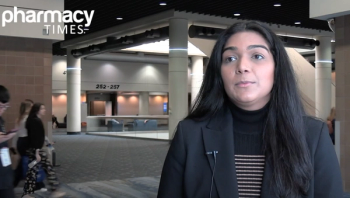
Pharmacists play a crucial role in promoting the appropriate use of broad-spectrum antibiotics to prevent antimicrobial resistance and improve patient outcomes.

Pharmacists play a crucial role in promoting the appropriate use of broad-spectrum antibiotics to prevent antimicrobial resistance and improve patient outcomes.
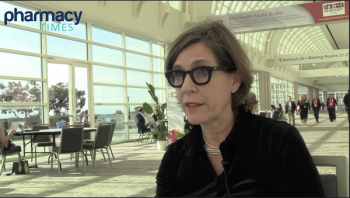
Sonja Zweegman, MD, PhD, explains the improvements in minimum residual disease negativity found after treatment with daratumumab and the VRd regimen in patients with newly-diagnosed multiple myeloma who are transplant-ineligible.

Luca Bertamini, MD highlights the potential clinical implications of using circulating tumor cells as a biomarker in patients with newly-diagnosed multiple myeloma.
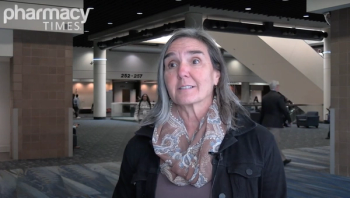
The primary challenge facing rural pharmacies include recruitment and retention of staff, the need for pharmacists to handle multiple roles and expertise, and the impact of burnout and stress.
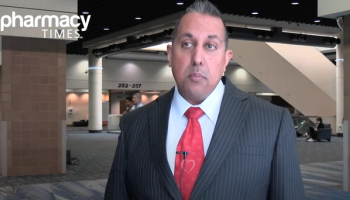
Snehal Bhatt emphasizes the need for patient-specific risk assessment and a thoughtful approach to balancing aspirin's benefits and bleeding risks as new treatment options become available.
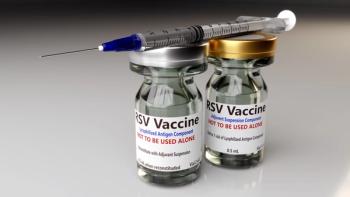
Pharmacists play a key role in vaccination efforts to prevent respiratory illnesses.

Panelists discuss how bispecific antibody therapies in relapsed/refractory multiple myeloma commonly present with cytokine release syndrome (CRS), immune effector cell–associated neurotoxicity syndrome (ICANS), and increased infection risks, while talquetamab specifically exhibits distinctive adverse events including nail changes, skin reactions, and oral toxicities.

Panelists discuss how infrastructure including specialized staff training, updated protocols, enhanced monitoring systems, and comprehensive educational resources for health care providers is essential for institutions to successfully implement and optimize bispecific antibody therapies while ensuring patient safety and treatment efficacy.
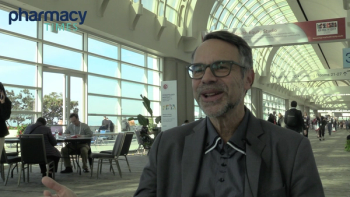
Ira Zackon, MD explains his analysis of bispecific antibody utilizaton for relapsed or refractory multiple myeloma in community oncology centers.
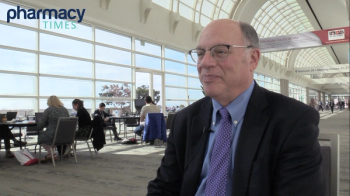
Robert Rifkin, MD, FACP, discusses multiple abstracts featuring drugs demonstrating efficacy in patients with relapsed/refractory multiple myeloma.
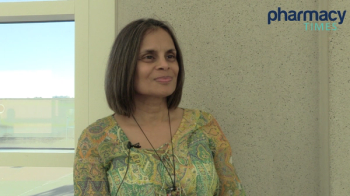
Shirley D'Sa, MD, highlights the long-term efficacy and tolerability of zanubrutinib in patients with Waldenström macroglobulinemia, as seen in the long-term extension of ASPEN.
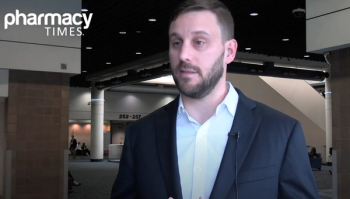
Both statins and newer non-statin medications are important in combination to effectively lower atherogenic lipid levels and reduce cardiovascular risk.
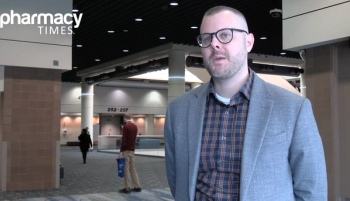
Pharmacists can leverage continuous glucose monitoring data to personalize diabetes management, overcome clinical inertia, and improve glycemic control for patients.
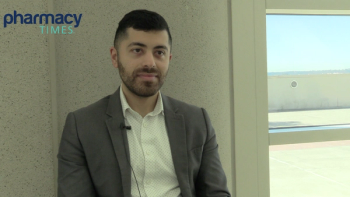
Amir Ali, PharmD, BCOP highlights the success of shorter-treatment duration venetoclax in patients with acute myeloid leukemia and efficacy of pre-transplant blinatumomab in those with acute lymphocytic leukemia.
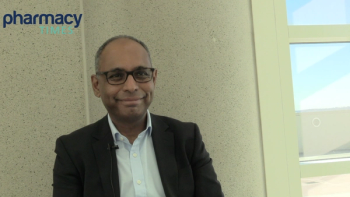
Rakesh Popat, MBBS, PhD explains the mechanisms of action behind the improvement in minimum residual disease in patients with lenalidomide-refractory multiple myeloma with cilta-cel compared with standard of care.
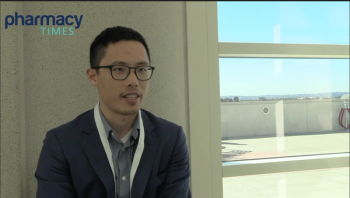
Jason Wang, MD highlights the reduction in incidence and severity of adverse events such as cytokine release syndrome and ICANS following axi-cel treatment in patients with R/R LBCL.
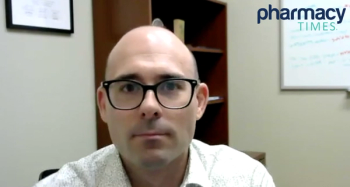
Donald Moore discusses some of the obstacles that bispecific antibodies have faced in community cancer centers, including misconceptions coupled with a prevalent toxicity profile.

Jose Tinajero discusses how certain mutations can be indicators of blinatumomab treatment failure in patients with B-cell acute lymphoblastic leukemia.
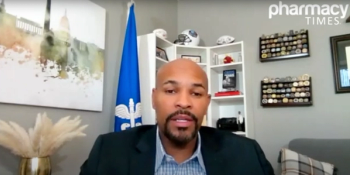
Jerome Adams, former US surgeon general, discusses the importance of receiving recommended vaccines against influenza and COVID-19 for health care personnel.

Pharmacists must make time for self-care and ensure a proper balance of work and life among their staff and themselves, according to National Association of Boards of Pharmacy Executive Director Al Carter.
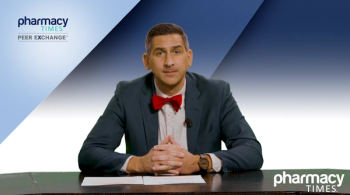
Craig Beavers, PharmD, FACC, FAHA, FCCP, BCCP, BCPS-AQ Cardiology, CACP, discusses how maximally tolerated statin therapy often fails to achieve target low-density lipoprotein cholesterol levels in high-risk patients with atherosclerotic cardiovascular disease and share strategies for optimizing adherence, including when to switch therapies to improve patient outcomes.
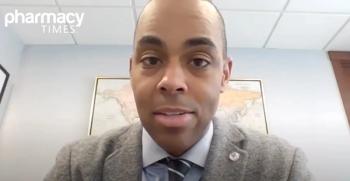
Al Carter of the National Association of Boards of Pharmacy speaks on recent initiatives to address workforce burnout and stress among pharmacists.

Panelists discuss how when selecting between weekly and biweekly dosing schedules for talquetamab and teclistamab in multiple myeloma treatment, health care institutions must carefully weigh factors like patient convenience, monitoring requirements, resource utilization, and total cost of care alongside clinical outcomes to determine optimal treatment pathways for both patient and health system benefits.

Panelists discuss how specific recommended dosing schedules exist for step-up medication administration, and protocols should incorporate flexibility for individualized dose adjustments based on patient response, tolerability, and clinical factors while maintaining systematic documentation of any deviations from standard escalation timelines.

Panelists discuss how advances in bispecific antibodies and CAR T-cell therapies are transforming treatment approaches for relapsed/refractory multiple myeloma, while presenting complex operational challenges that require innovative institutional strategies.

Panelists discuss how bispecific T-cell–engaging therapies targeting BCMA, GPRC5D, and FcRH5 have emerged as novel immunotherapeutic approaches showing meaningful clinical activity for patients with heavily pretreated relapsed/refractory multiple
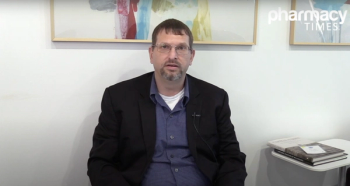
Raymond Lorenz, PharmD, BCPP, discusses the role of pharmacists in bridging laboratory results and clinical practice, highlighting ongoing efforts to establish pharmacogenomic testing standards and foster multidisciplinary collaboration for broader clinical impact.
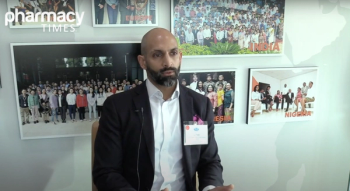
Jai N. Patel, PharmD, BCOP, CPP, discussed efforts to standardize the evaluation of clinical utility in pharmacogenetics, emphasizing its variability, the role of pharmacogenomics in research, and the importance of robust study designs for pharmacy professionals.

The panel discussion concludes with final thoughts on the future landscape of newly diagnosed multiple myeloma.
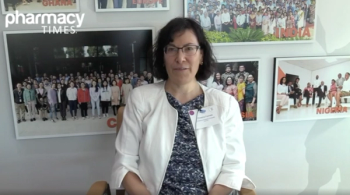
Christine Formea, PharmD, MHI, BCPS, FCCP, FASHP, discusses the need for standardized pharmacogenomics education in pharmacy, highlighting opportunities for collaboration, professional growth, and integration of key competencies across curricula to advance the profession.